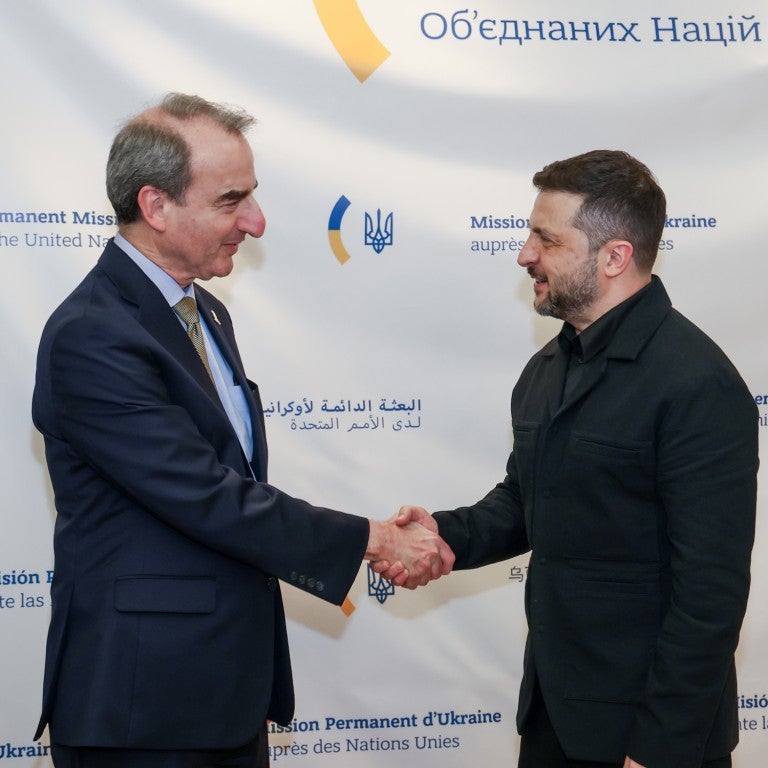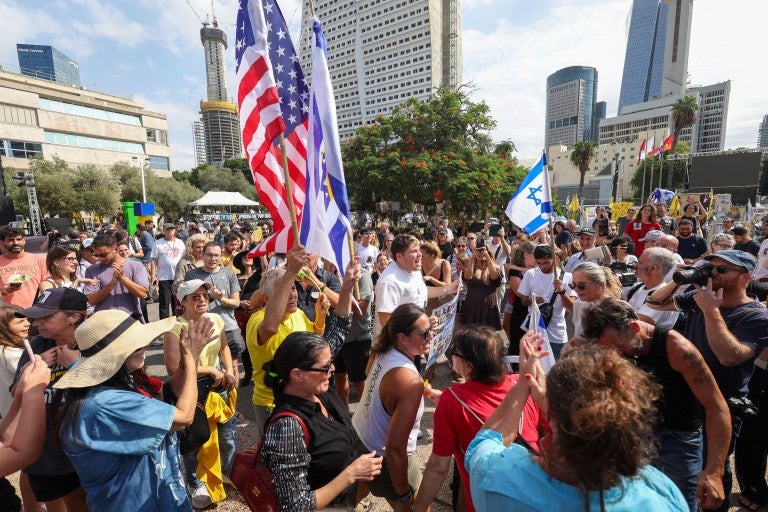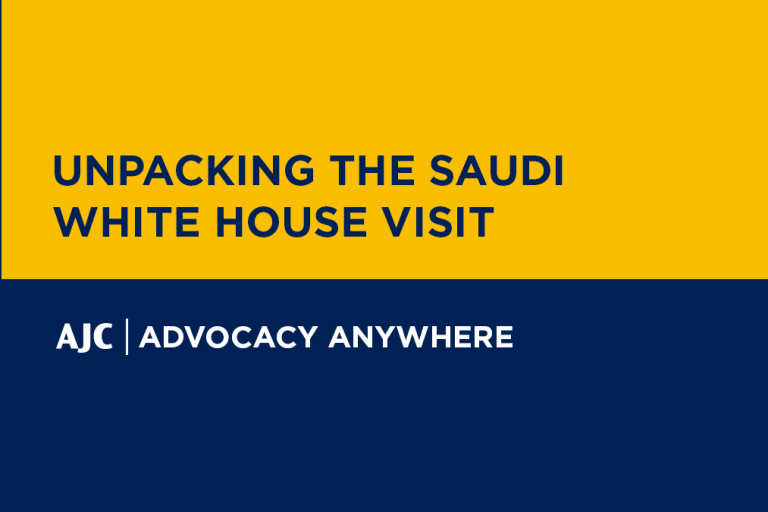April 13, 2022 — Paris
This piece originally appeared in JNS.
Growing up as a Jew in traumatized post-Holocaust Germany, I have been haunted by the imperative of “Never Again.” As the Russian army retreats from areas north of Kyiv and we are collectively getting a glimpse of the horrors Ukrainians have been enduring, those words keep resonating in my mind. Corpses in the streets, testimonies of brutal executions of men, mass rapes of women and girls as young as 8, dying from their internal wounds. Is “Never Again” happening all over again?
“When you find people executed with their hands tied behind their backs, people decapitated, children killed and tortured, this is genocide,” Ukrainian President Volodymyr Zelensky said after visiting Bucha. Other world leaders have used that term as well. Some leading historians believe that we are witnessing genocide; others are more prudent. International tribunals will decide whether “the intent to destroy, in part or all, a national group”—the legal criteria necessary to determine whether a genocide has taken place—will have been met.
But irrespective of that debate, it is likely that what we are seeing in Bucha is just the beginning. The language used by Russian officials, starting with Russian President Vladimir Putin, should be setting off alarms that a free pass, if not worse, is being given to Russian forces to commit more atrocities. As the French priest Patrick Desbois—the man who worked in Ukraine for decades locating and marking mass graves of more than a million Jews murdered during the Holocaust has said—“it is the propaganda that allows for the worst to take place.”
And propaganda there is. Putin has spoken and written that Ukraine is not a sovereign nation. “Ukraine is an inalienable part of our own history, culture and spiritual space,” he wrote in 2021. Justifying the war or what he calls the “special operation,” Putin also spoke at length about “de-Nazification” as one of his key goals.
“The (Nazi) elite must be eliminated,” Commentator Timofei Sergeitsev declared in a piece titled “What Russia should do with Ukraine” in Russia’s official press agency Ria Novosti. “Re-education is impossible,” he wrote, suggesting that an entire generation of Ukrainians be subjected to “de-Nazification” measures.
Dmitry Medvedev, the former Russian president and currently deputy chair of the Security Council of Russia, wrote on his Telegram channel that “the war will be decided not only on the fields of battle. Changing the bloody and fully false myths of the consciousness of a segment of today’s Ukrainians is the most important aim.”
For Russians, according to the official narrative, their army is righteous, as it is not fighting against innocent Ukrainians but against Nazis. Ukrainians generally become immutable collaborators with Nazism as the incarnation of evil. For psychologist Erik Erikson, who has extensively worked on mass crimes, “people lose the sense of being one species by trying to make other people into a different and morally dangerous one, one that isn’t human. … You can kill, rape and hurt without feeling that you have done anything wrong to your own kind.”
It is what renders horrific acts in Ukraine possible, particularly as individuals who have lost their conscience, look to the group leader as their moral compass. And it appears that the group leader, Putin, will not rest until he can demonstrate an image of victory over “the Nazis” to the Russian people.
This evidence poses serious questions for the West. European and American leaders have made it clear that they will not enter war directly with Russia. But if the words “Never Again” that I grew up with bear any meaning in today’s world—if we want the new generation to believe that the West, that liberal democracies, stand for immutable values—don’t we have the moral obligation to do more?
In an era-defining moment, decisions made will stick for decades. This is why more weapons and supplies must be delivered to Ukraine. This is why we need to dry up Russia’s revenues faster. The money we Europeans pay for gasoline allows Putin to finance his horrific war machine.
Look at Europe’s interdependence and fragility in terms of Russian interference now and in the future. If our strength fails us now, Putin will not stop, and the question for him will be whether another country is next. Not only is the future of Ukraine and Europe at stake, but that of the current world order. China and Iran, in particular, are watching closely. Finally, those responsible for war crimes in Ukraine must be held accountable.
There can be no peace—no respect for world order and for our values in the future—in a world lacking justice. The world promised “Never Again” in the last century, and it is our obligation to do everything in our power to ensure that is not just an empty promise.
Simone Rodan-Benzaquen is managing director of American Jewish Committee (AJC) Europe, and vice president and co-founder with Bernard-Henri Levy of SOS Darfur.






